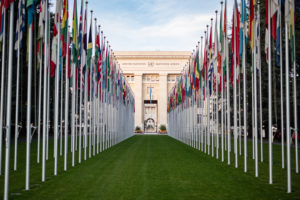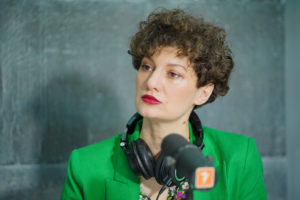
Freedom of association
Freedom of association is one of the most basic rights enjoyed by humans. It ensures that every individual is free to organise and to form and participate in groups, either formally or informally.



Our position
Video: Clément Voule, UN Special Rapporteur on rights to freedom of peaceful assembly and of association discusses the importance of these freedoms.
The right to freedom of association is core to any society. It is an indispensable right in enabling citizens to monitor the human rights situation in a country and to support the implementation of human rights policies. It is key for the work of human rights defenders.
“Imagine a world without civil society. That world is bleak. Civil society has been at the forefront of numerous landmark political and social changes over the last decade; changes that have improved societies and individual lives in diverse and meaningful ways.”
Maina Kiai, former United Nations Special Rapporteur on the rights to freedom of association and peaceful assembly.
It is also a right that is at the very heart of the Human Rights House concept. We advocate for the right to associate, and we live by it, experience it, and know first hand how restrictions can affect associations.
The right to freedom of association covers organised and professional organisations such as political parties, trade unions, public associations and non-governmental organisations with employees. It also covers organisations based on volunteers, and covers groups and entities with or without a legal personality.
States have an obligation to ensure that people are free to form and participate in associations of any type and to engage independently in any legal and lawful activity. This includes being able to seek and receive resources, to organise and to peacefully promote and protect human rights.

Registration of civil society
Registration should never serve as a tool to control the establishment of organisations, but rather as a tool to provide them with a legal status in jurisdictions that require such a measure.
Denying registration to NGOs that challenge or criticise the government is a violation of the right to freedom of association which forces civil action underground and delegitimises NGO work. Registration as a form of repression also hinders the formation of an open and pluralistic society, by excluding civil society from public dialogue.
In many countries with a high level of civil society engagement and indeed an enabling environment, prior registration is not mandatory. If such regulations are in place, the UN has underlined that principles guiding the rule of law also apply to these regulations, meaning that they should be determinable, non-retroactive, lawful, proportional, non-discriminatory, and necessary. Furthermore, registration procedures should be expeditious, and not be used as a tool to slow down the establishment of organisations.
The possibility to appeal a decision should be included in the regulation, to provide civil society organisations with fair access to obtaining legal status. Provisions should not require re-registration, enabling organisations to be sustainable and look to the long-term.
Procedures governing the registration of civil society organisations play an important role in the control of civil society space. With this in mind, the power to limit the right to freedom of association must be appropriately framed. States should not impose lengthy, burdensome or overly bureaucratic registration processes, as this would undermine the effective functioning of NGOs.
In some countries, registration applications filed by associations can take up to a month to be considered for approval, while business registration is considered complete the moment the application is filed.
Burdensome re-registration and reporting requirements usually do not meet the criterion of necessity, as they are solely used to control the activities of NGOs. Nor do they follow the principle of non-discrimination, as often more requirements are placed on civil society than on businesses. There are also doubts that such requirements are proportional, given the heavy requirements with regard to the budget of NGOs, in comparison to businesses for example.






